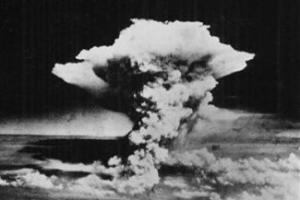The New Congress Needs to Create a Green Planet at Peace
World Beyond War
 Against all odds, 122 countries agreed in July to ban nuclear weapons. At the heart of the United Nations treaty is an explicit ethical goal: to protect peoples of the world from the humanitarian catastrophe that would ensue if nuclear weapons were employed. Once 50 states ratify the treaty, it will enter into international law. The United States, the only country to use nuclear weapons, dropped the first atomic bomb on Aug. 6, 1945 at Hiroshima, and Aug. 9 on Nagasaki.
Against all odds, 122 countries agreed in July to ban nuclear weapons. At the heart of the United Nations treaty is an explicit ethical goal: to protect peoples of the world from the humanitarian catastrophe that would ensue if nuclear weapons were employed. Once 50 states ratify the treaty, it will enter into international law. The United States, the only country to use nuclear weapons, dropped the first atomic bomb on Aug. 6, 1945 at Hiroshima, and Aug. 9 on Nagasaki.
Gloria Steinem, Vanessa Williams, Felicity Huffman, Fatma Saleh, Alfre Woodard, Ashraf Salimian, Christine Lahti and Mother's Day for Peace talk about the origin of Mother's Day by Julia Ward Howe as a protest against war.
Spread the word